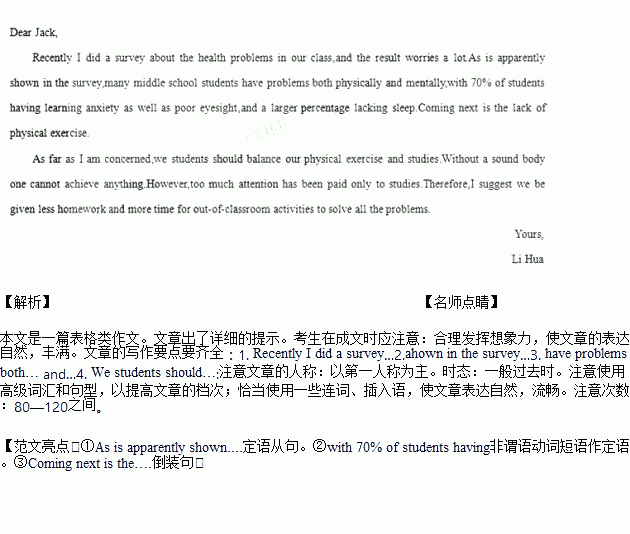题目内容
假定你是李华,你对本班50个学生进行了健康问题的问卷调査。请给你的班主任兼英语老师Jack写一封电子邮件,告知调査的结果和自己的建议。内容主要包括:
1.依据表格内容,综述学生当前存在的健康问题;
2.就中学生如何保持身心健康提出自己的建议。
注意:1.词数100左右;
2.可适当增加细节,以使行文连贯。
问题类型 | 学习焦虑 | 睡眠不足 | 缺乏锻炼 | 视力不佳 |
人数 | 35 | 40 | 25 | 35 |
比例 | 70% | 80% | 50% | 70% |
练习册系列答案
 轻松暑假总复习系列答案
轻松暑假总复习系列答案
相关题目


